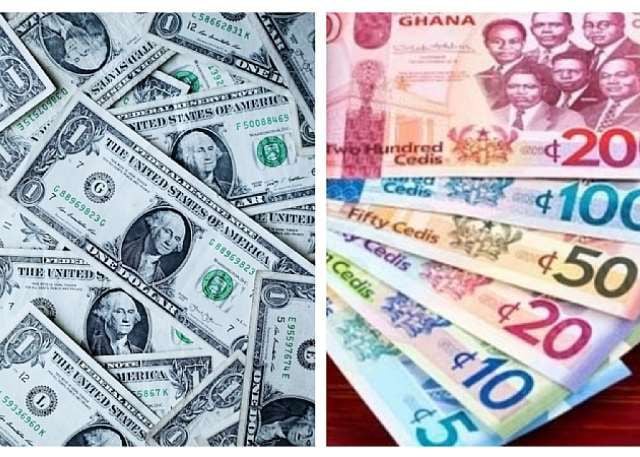The Ghanaian cedi continued its downward trajectory against major international currencies on Friday, August 22, 2025, experiencing further depreciation, particularly against the US dollar. Data compiled from Cedirates.com, a trusted source for currency and fuel prices in Ghana, reveals a concerning spread between buying and selling rates across various exchange platforms. This widening gap reflects the increasing pressure on the cedi and the challenges faced by individuals and businesses engaged in international transactions. The volatility in the foreign exchange market underscores the ongoing economic pressures facing the Ghanaian economy.
Focusing on the US dollar, the average exchange rate at forex bureaus stood at GHS11.70 for buying and GHS11.98 for selling, indicating a significant premium compared to the interbank market rate. The Bank of Ghana’s interbank market, which typically reflects transactions between banks, quoted a buying rate of GHS10.94 and a selling rate of GHS10.96. This discrepancy between the interbank and forex bureau rates highlights the increased demand for dollars outside the formal banking system, possibly driven by speculation or difficulties accessing foreign currency through official channels. This parallel market premium can exacerbate inflationary pressures and create distortions in the economy.
The depreciation of the cedi was not limited to the US dollar. The British pound and the euro also saw their values rise against the Ghanaian currency. At forex bureaus, the pound traded at an average buying rate of GHS14.47 and a selling rate of GHS15.12. The Bank of Ghana’s interbank rate for the pound stood at GHS14.70, again reflecting a difference between the formal and informal exchange markets. Similarly, the euro traded at GHS12.51 for buying and GHS13.12 for selling at forex bureaus, while the interbank rate was quoted at GHS12.72. These trends indicate a broader weakening of the cedi against major international currencies, which could have implications for import costs and overall price stability.
Money transfer operators, including LemFi and Afriex, offered slightly more competitive rates for remittances from the US or UK to Ghana. Both companies quoted GHS10.85 for dollar remittances, GHS14.68 (LemFi) and GHS14.60 (Afriex) for pound remittances, and GHS12.65 for euro remittances. These rates, while still reflecting the cedi’s depreciation, offer a marginally better deal for individuals receiving funds from abroad compared to the rates available at forex bureaus. This difference underscores the competitive landscape of the remittance market and the potential for specialized financial technology companies to offer more favorable exchange rates.
Furthermore, digital subscription payments for services like Netflix, Spotify, and Apple Music, processed through Visa and Mastercard, incurred an exchange rate of GHS11.82 for both providers. This rate, positioned between the interbank and forex bureau rates for the dollar, highlights the specific exchange rate considerations for online transactions and the embedded costs associated with using international payment platforms. The slightly elevated rate for digital subscriptions likely reflects processing fees and other charges associated with international card transactions.
In conclusion, the Ghanaian cedi faced significant pressure on August 22, 2025, depreciating against the US dollar, British pound, and the euro. The widening gap between interbank and forex bureau rates reveals the increased demand for foreign currency outside official channels, potentially driven by speculative activities and challenges in accessing forex through formal banking systems. This situation has implications for the broader economy, potentially contributing to inflationary pressures and creating distortions in trade. While remittance services offer slightly more competitive rates, the overall trend of cedi depreciation poses challenges for individuals, businesses, and policymakers alike. Monitoring these trends and implementing appropriate economic policies will be crucial for stabilizing the cedi and mitigating the negative impacts of its depreciation.


